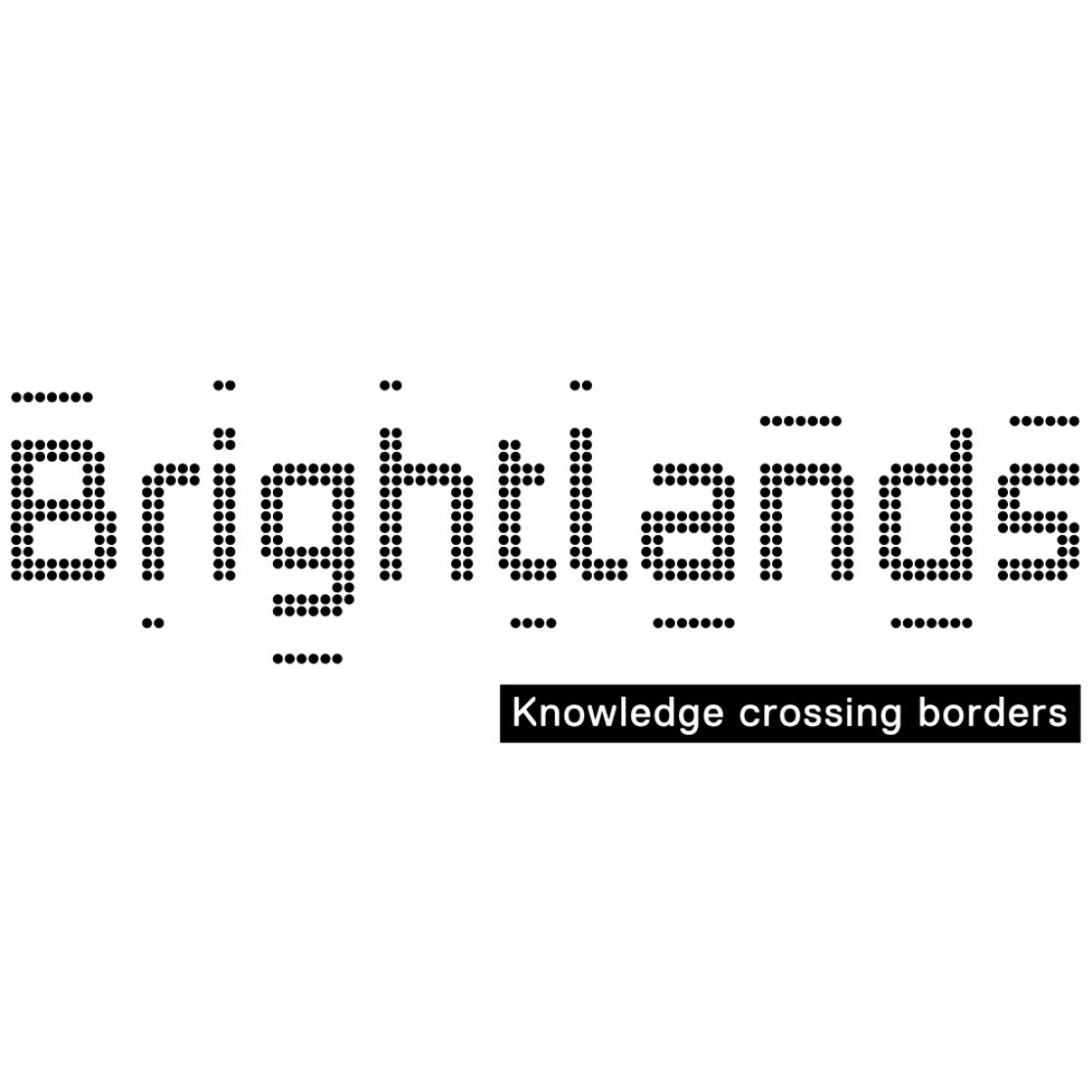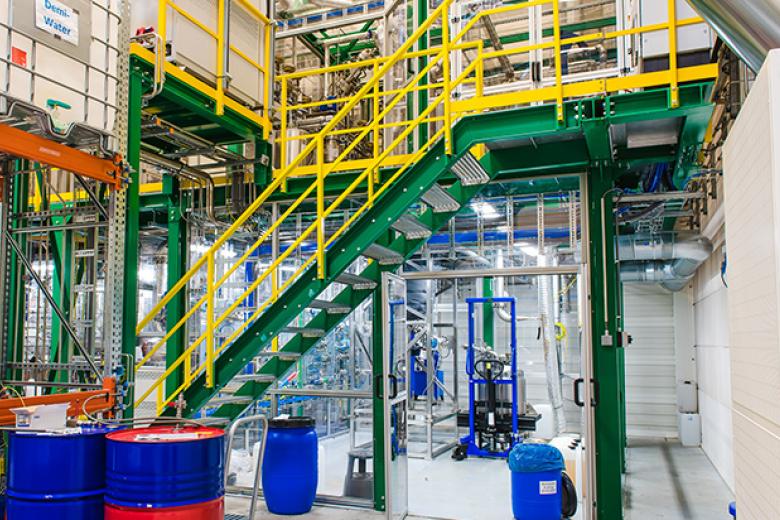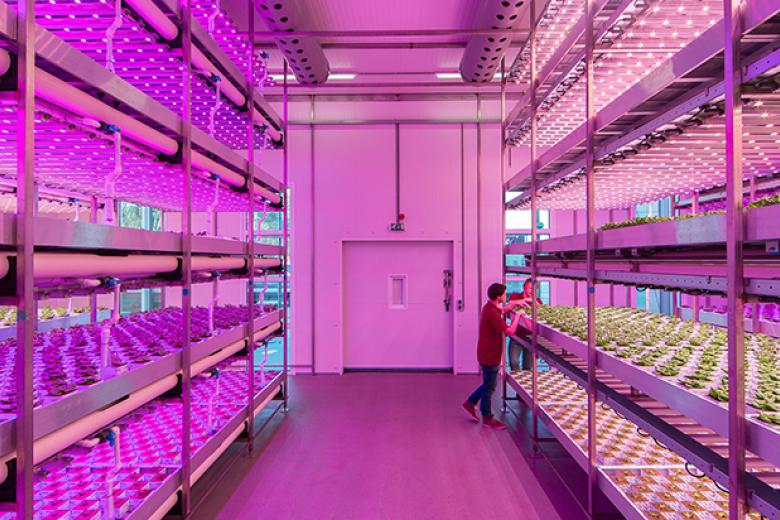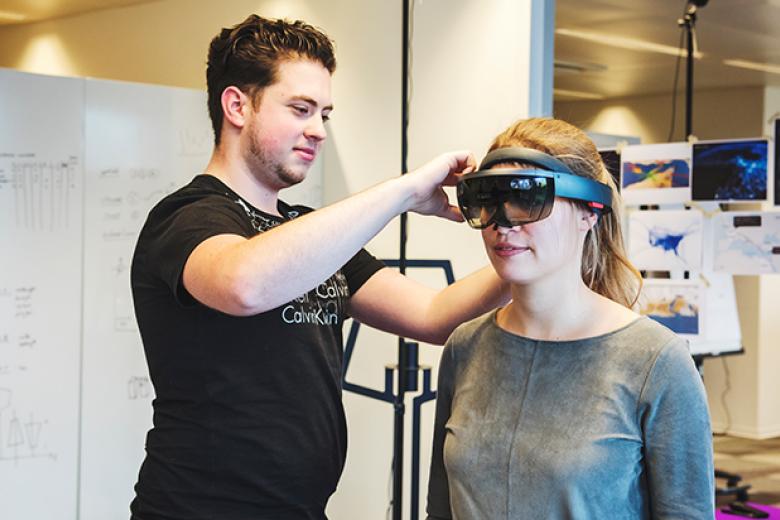Why this programme
The bachelor's Circular Engineering prepares you to be the engineer of the future. In a circular economy, resources are reused and waste is minimised. Both are needed to create a long-lasting healthy planet and a strong economy. Circular engineers play a key role in the transition towards the circular economy as they have the knowledge and skills to design, develop and optimise products, processes and services to enhance circularity for a sustainable society and industry.
The bachelor's programme Circular Engineering is for highly motivated students with a passion for engineering and a drive to contribute to a more sustainable society and industry.
Real-life challenges
More specifically, circular engineers assess and optimise the entire lifecycle of products, processes and services. They use the concepts of reduce, reuse, remake, repair and recycle to generate technical solutions that reduce or eliminate the ecological footprint. Throughout the bachelor’s programme, you are faced with real-life challenges of increasing complexity in which you apply these concepts, such as:
Disposable pressure sensors
Disposable pressure sensors are often used in Intensive Care units to prevent cross-contamination to other patients. You are challenged to analyse these sensors from a circularity perspective - for instance by assessing which parts of these sensors can be reused, remade or recycled - and generate a technical solution to increase their circularity.
Plastic packaging of food products
Plastic packaging of food products is a major contributor to the generation of plastic soup. You are asked to analyse the entire packaging chain of a food product of your choice, identify all stakeholders involved and determine per stakeholder what business options are applicable in case a transition to a sustainable packaging system is strived for.
Fossil resource
The chemical industry is currently highly dependent on fossil resources (naphtha and natural gas) for energy and feedstock. Your job is to select which biomass and technologies are suitable to replace a certain percentage of fossil feedstock in an existing chemical production process. Every step within a chemical process uses or generates energy. You need to optimise the process design of a chemical process or a cluster of chemical processes to minimise energy consumption in a smart way.
Efficient food production
Efficient food production requires innovative solutions to long-standing problems. For instance, growing carrots can be challenging as it is highly dependent on temperature, humidity, and structure of the soil: conditions that are difficult to monitor or control. You are asked to define a process that would allow to grow carrots in a greenhouse using various types of sensors and artificial intelligence techniques to analyse optimal growth conditions.
Preparation/analysis of tissue samples
In the preparation and analysis of tissue samples, quite some processing steps are required including a number of high energy sources (-80°C freezer) as well as the use of chemicals. You are asked to optimise and redesign the imaging process to reduce waste, number of consumables, energy and to replace chemicals by biodegradable substitutes.
Green energy alternatives
Ranging from large-scale industries to small households, a transition is taking place to reduce energy consumption and to replace energy sources with greener alternatives. You are asked to assess which energy saving technologies can replace currently used technologies and apply it to a real-life situation, for instance by designing a heat pump and analysing its energy reducing effect.
Green energy alternatives
Ranging from large-scale industries to small households, a transition is taking place to reduce energy consumption and to replace energy sources with greener alternatives. You are asked to assess which energy saving technologies can replace currently used technologies and apply it to a real-life situation, for instance by designing a heat pump and analysing its energy reducing effect.
Stable food supply
As the world population increases, new approaches are necessary to guarantee a stable food supply. For instance, spinach seeds have a higher yield when they are produced by crossing a plant with mainly male flowers with a plant that has mainly female flowers. Your task is to find out the optimal growth conditions for growing plants with either male or female flowers to support the production of high-yield spinach seeds.
Brightlands: knowledge crossing borders
In this programme, you are provided with the unique opportunity to complete (parts of) your education at the Brightlands campuses, right in the middle of and often in collaboration with industry.
Brightlands is an ambitious and open innovation community in a global context, connecting four campuses in the province of Limburg: in Maastricht, Heerlen, Sittard-Geleen and Venlo. At the campuses, different communities, companies, schools and institutions, including Maastricht University, work together to develop ground breaking innovations. On the four campuses more than 200 companies are present, and entrepreneurs, researchers and students use state-of-the-art facilities to support education, innovation and growth.

Problem-Based Learning
The main method of instruction in the bachelor Circular Engineering is Problem-Based Learning (PBL). In a PBL environment, you work in small tutorial groups of about 15 students on scientific and engineering questions and challenges, usually in the form of case studies. You conduct discussions, exchange knowledge and formulate your learning goals as a group.
By actively addressing real-life issues, you better grasp the theory and learn to apply your insights to various situations. The variety of perspectives enlivens the discussions and allows you to experience the true strength of your group’s cultural diversity. Moreover, you gain essential skills, such as presenting your viewpoints, debating, writing academic texts and collaborating with peers.
Research-Based Learning
The bachelor Circular Engineering employs Research-Based Learning (RBL) in addition to PBL. Gradually throughout the programme, you are faced with engineering challenges of increasing complexity.
RBL starts with small engineering challenges in the tutorial groups and skills training sessions in year 1. Subsequently, it is further developed in the various design projects throughout the curriculum, in which you make your own discoveries and research and develop technical solutions, in addition to learning about existing theories and systems. RBL culminates into the individual bachelor thesis.
In skills training sessions and projects you work at our state-of-the-art engineering laboratories.
RBL in short
Research-based learning encourages you to:
- Make your own discoveries by studying new techniques, materials, and processes with a scientific attitude
- Formulate questions with yet unknown answers
- Develop engineering solutions for the challenges in the transition to the circular economy




